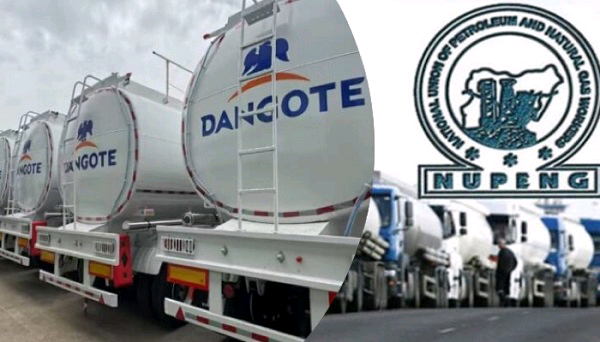The Federal Government has asked the National Union of Petroleum and Natural Gas Workers (NUPENG) to cancel their planned nationwide strike set to begin on Monday, September 8. The strike is over a disagreement with the Dangote Group, which reportedly does not allow its workers to join a union.
The Minister of Labour and Employment, Muhammad Maigari Dingyadi, made this request over the weekend. He also asked the Nigeria Labour Congress (NLC) to cancel the warning it gave to other unions to prepare for a strike in support of NUPENG. The strike is a response to what workers say are unfair actions by the Dangote Group against workers and unions.
The Minister said his office has already stepped in to help solve the problem. Because of this, he is asking the unions not to go ahead with the strike, to avoid problems in the important oil and gas sector of Nigeria’s economy.
A statement from the Ministry’s spokesperson, Patience Onuobia, quoted the Minister saying that all parties have been invited to a meeting on Monday, September 8, 2025. He pleaded with NUPENG to cancel the strike and asked NLC to also withdraw its alert for a possible larger strike.
The Minister explained that the oil sector is very important to Nigeria’s economy. A strike, even for one day, could seriously harm the country’s economy, cause big financial losses, and create hardship for the people.
He urged the unions to allow for peaceful discussions. He promised that the government will work to settle the issue in a way that makes everyone involved happy.
The Minister also told Nigerians that the government is working to solve the problem peacefully and avoid any disruption to the oil sector, which is crucial for the country.
Last Friday, NUPENG warned that it might begin a national strike. They accused Aliko Dangote and his cousin Sayyu Dantata of using unfair business practices that go against workers’ rights and union activities.
In a statement by its leaders, Williams Akporeha and Afolabi Olawale, NUPENG said the two businessmen plan to take over the oil and gas sector by bringing in 10,000 Compressed Natural Gas (CNG) trucks. This move, the union said, could hurt other businesses in the sector, take away workers’ rights, raise fuel prices, and lower the standard of living for Nigerians.


